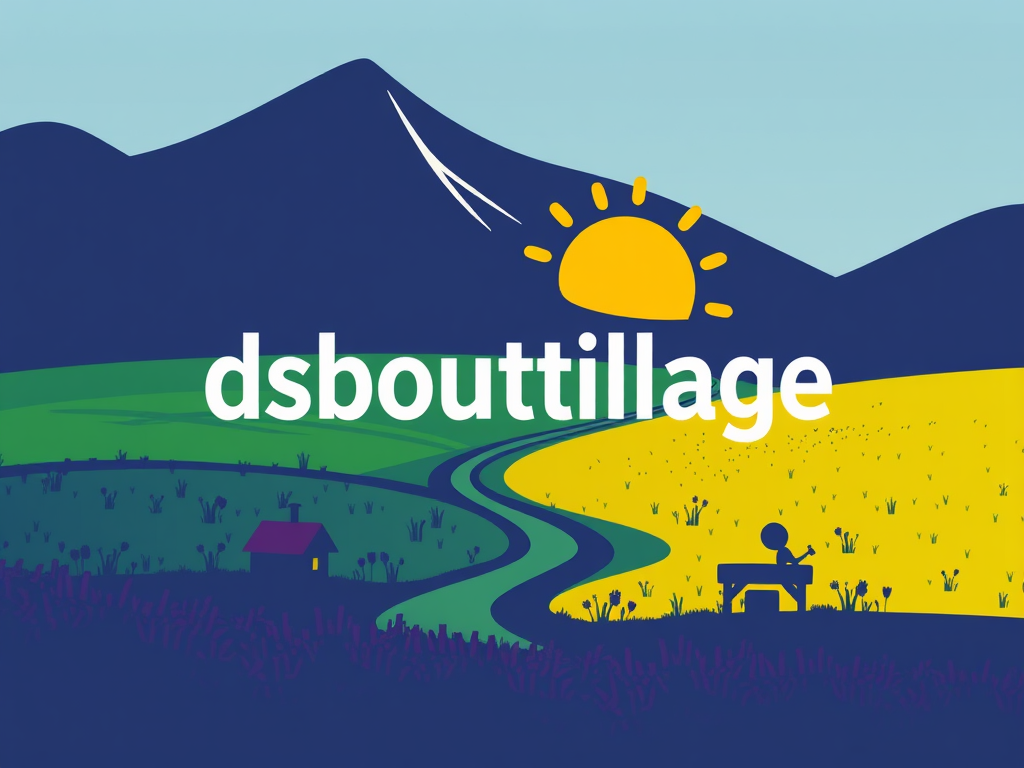Overview of Brexit’s Impact on Agriculture
The Brexit effects on agriculture have brought significant transformations to the UK’s agriculture sector. With the UK’s exit from the EU, there’s been a fundamental overhaul in how the agriculture sector operates, both in terms of regulatory frameworks and economic conditions. The transition has introduced a mixed bag of challenges and potential opportunities.
One critical change involves trade agreements that previously allowed for seamless transactions within the European Union. The new post-Brexit trade frameworks have introduced concerns such as increased tariffs and altered trade barriers, affecting the competitiveness of UK agricultural products in European markets. These shifts are leading to a re-evaluation of export and import strategies within the sector.
Additionally, there’s an ongoing debate surrounding the regulatory and economic adjustments now required. With Brexit, UK agriculture must now adhere to new agriculture regulations and compliance standards which diverge from EU norms. This shift impacts food safety protocols, environmental regulations, and subsidy frameworks, requiring stakeholders to adapt swiftly to remain compliant and competitive.
Despite these challenges, there are prospects for growth and innovation. The economic landscape for farming businesses is changing, with a potential for increased focus on domestic agricultural production. This transition could foster improved self-sufficiency within the UK agriculture sector, encouraging investment in sustainable practices and new technologies. Stakeholders are keenly exploring these opportunities to ensure resilience and growth in a post-Brexit environment.
Changes in Trade Agreements
Brexit has reshaped the landscape of trade agreements for the UK’s agriculture sector, bringing forth profound implications. The seamless trade relationships within the European Union have been substituted by new frameworks, introducing additional tariffs and trade barriers. Importantly, pre-Brexit, many agricultural products flowed freely across borders. Now, specific products face altered market access, prompting revisions in export-import strategies.
These changes are particularly pronounced in the trade agreements post-Brexit, as the UK negotiates independently with Global markets. The resulting agricultural exports and imports dynamic subjects certain sectors to competitive pressure, necessitating strategic adjustments to retain market share.
Furthermore, the industry witnesses a paradigm shift in terms of tariffs. Previously minimal duties have given way to more burdensome fiscal structures, challenging the cost-efficiency of UK agricultural exports. Consequently, producers must navigate these hurdles creatively to sustain international competitiveness.
Interestingly, while some products find new opportunities under revised agreements, others struggle. For example, dairy and beef sectors confront stricter barriers, impacting their export potential to traditional European markets. Conversely, opportunities may emerge in non-EU markets as fresh agreements unfold.
Labor Shortages and Workforce Challenges
Brexit has significantly affected the workforce in the UK farming sector, with notable labor shortages in agriculture emerging as a major challenge. The industry’s reliance on migrant labor, mainly from the EU, has faced unprecedented disruption since the UK’s departure from the European Union. Before Brexit, the agriculture sector enjoyed a steady flow of seasonal workers who filled a critical gap in the labor market. However, post-Brexit immigration restrictions have curtailed this essential workforce supply.
Statistics depict a concerning picture, with a marked decrease in the availability of migrant labor. For instance, the National Farmers Union reported that in 2021, more than 500,000 harvest roles remained unfilled, dramatically impacting productivity and crop yields. With insufficient local labor willing to fill these positions, the agriculture industry is grappling with how to maintain output and profitability.
To address these workforce challenges, the sector is exploring potential solutions, including increased mechanization and investment in automation technologies. Such advancements could offset the reduced labor supply, but they require significant capital investment and time for effective implementation. Moreover, the government and industry stakeholders are advocating for tailored visa programs to facilitate the entry of necessary seasonal workers, balancing the immediate labor demand with sustainable long-term staffing strategies.
Regulatory Alterations in Agricultural Practices
The Brexit regulatory changes have significantly reshaped the framework within the UK’s agriculture sector, introducing new agriculture regulations UK must follow. These adjusted regulations have multifaceted implications, affecting everything from food safety protocols to environmental standards and subsidies.
For food safety, the divergence from EU norms has necessitated the creation of new compliance benchmarks that UK farmers must adhere to, ensuring that agricultural products meet domestic standards while still aiming to be compatible with international markets. This shift has raised concerns among stakeholders about the increased administrative burdens and the potential for discrepancies when exporting goods.
Environmental standards, too, have been impacted as the UK moves to implement its own initiatives. While this offers a chance to tailor regulations in a way that could benefit local ecosystems, it also poses challenges. Stakeholders express worries over maintaining or exceeding the environmental safeguards that were previously aligned with EU directives, emphasizing the need for consistency in conservation efforts.
Subsidy frameworks have also undergone change, with Brexit prompting a reevaluation of support systems that farmers rely on. The transition offers a potential benefit—a chance to develop subsidies that better fit the UK’s unique agricultural landscape. However, these changes have induced anxiety regarding the stability of financial assistance and its effect on farming operations, especially for smaller enterprises that heavily depend on consistent subsidy support.
Overall, navigating the post-Brexit regulatory landscape requires farmers to stay informed and adaptable, ensuring compliance while capitalizing on the opportunities this new framework presents.
Environmental Considerations and Sustainability Issues
In the aftermath of Brexit, the environmental impact on the UK’s agriculture sector has prompted a reevaluation of sustainability in farming practices. The departure from the EU allows for the UK’s environmental regulations to be tailored specifically to its domestic needs, providing an opportunity for innovation in sustainable practices. However, it also raises concerns about potential discrepancies in conservation efforts formerly aligned with EU standards.
Brexit has influenced the introduction of bespoke regulatory changes, offering potential benefits through the adoption of ecologically sensitive farming methods. This shift aims to encourage better agricultural practices that can enhance biodiversity and soil health, contributing to long-term environmental resilience. Yet, stakeholders express unease about transitioning to these new approaches, particularly regarding the compliance costs and possible divergence in ecological protections.
Despite these challenges, there are new prospects for sustainability in agriculture, including the integration of advanced technologies to improve resource management. Farmers are exploring precision farming tools that offer efficient water usage and reduced chemical inputs, aligning with a broader shift towards eco-friendly methodologies. These changes present an opportunity to carve a niche for UK agriculture in the global market, emphasizing high environmental standards and sustainable production models.
This transformation also opens dialogue on the role of government support in facilitating the transition. Strategic initiatives, including grants and incentives for sustainable farming practices, are critical in guiding the industry. Overall, the post-Brexit environment acts as a catalyst for sustainability in farming, challenging the sector to innovate while ensuring that ecological integrity remains a top priority.
Expert Opinions and Insights
In examining the expert analysis of Brexit’s effects on agriculture, industry specialists and economists provide crucial agriculture policy insights that illuminate the path forward. These insights highlight both the challenges and potential strategies for the UK’s agriculture sector as it navigates the new, post-Brexit landscape.
Understanding Economic Shifts
According to experts, the economic impact of Brexit on agriculture revolves around navigating fresh market dynamics. UK agriculture must contend with altered trade relationships and new tariff structures. As a result, farms are urged to explore innovative approaches to production and market access, ensuring resilience in the face of shifting demands.
Case Studies and Real-World Implications
Several farms have adapted swiftly by recalibrating their business models. For instance, some have diversified crops to cater to new, non-EU markets, seizing opportunities presented by new trade agreements. These case studies emphasize the importance of flexibility and proactive strategy in overcoming Brexit-related hurdles.
Recommendations for Stakeholders
Experts recommend a focus on sustainability and technology investment to bolster the agriculture sector. Strategic actions such as adopting precision farming technologies can mitigate labor shortages and enhance efficiency. Additionally, aligning with global sustainability trends can promote the UK’s agricultural products on the international stage, fostering competitive advantage.
Navigating the complexities of the post-Brexit context requires informed decision-making, reinforced by expert guidance. Agricultural stakeholders are encouraged to stay proactive, leveraging expert insights to adapt successfully in a redefined landscape.
Economic Shifts and Market Adjustments
The economic impact of Brexit on agriculture has prompted considerable adjustments in the UK’s market dynamics. As the country navigates this new landscape, significant market changes are evolving, highlighting critical areas where agricultural businesses must adapt to maintain competitiveness.
Economic Implications: The shift in trade frameworks has altered the cost structures faced by UK farmers. With new tariffs affecting exports, agricultural businesses are urged to reassess their market approaches. The necessity to identify non-EU markets and exploit fresh trade opportunities is now more pressing than ever. By diversifying product lines or refining production processes, farms can better cushion themselves against these economic upheavals.
Market Trends: Current market trends underscore a pivot towards local sourcing and a deeper engagement with global markets. There’s a growing emphasis on self-sufficiency within the UK’s agriculture sector, coupled with an exploratory look into sustainable practices that can bolster both economic sustainability and environmental resilience. Adopting responsible farming models not only aligns with global sustainability trends but also reinforces the UK’s agricultural position internationally.
Case Studies: Several farms illustrate proactive strategies in response to Brexit’s economic reality. For instance, diversifying crop selections to target burgeoning non-EU markets has allowed some farms to maintain revenue streams despite shifting economic pressures. These examples emphasize that adaptability and strategic foresight are indispensable in overcoming Brexit-related market challenges.
Adapting to these economic shifts requires stakeholders across the agriculture sector to remain vigilant, embracing innovative methodologies and seeking out new business models that align with the post-Brexit economic environment.


